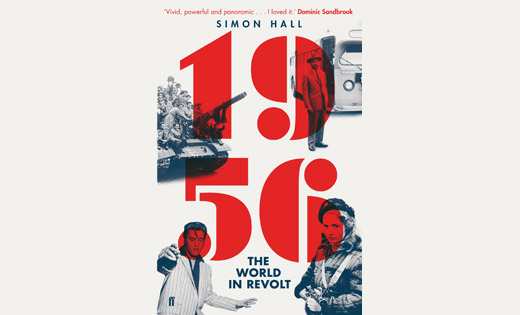6-7 April 2017, Centre for Research in Memory, Narrative and Histories, University of Brighton, UK
This interdisciplinary conference
aims to build on the momentum created by the first Reparative Histories symposium
held in 2014 and by the subsequent publication of a special issue of Race & Class (‘Reparative Histories:
radical narratives of ‘race’ and resistance’, Race and Class, 57, 3 (2016)). That first event was interested in critically
addressing the ways in which conceptions of the ‘reparative’ are currently
shaped and understood, and in exploring what it means to turn to history in the
appeal for recognition and redress. We set out to explore the question of how
to relate the past to the present in the context of ‘race’, narrative and
representation. Significant issues stemming from the first symposium concerned
the importance of thinking through forms of historical interconnectedness both
spatially and temporally, and ways of addressing, the dialectics of
anti-colonial struggle, anti-racist resistance and mobilisation. This
conference aims to further develop the concept of ‘Reparative Histories’ and to
build on these concerns.
Given that racialised
meanings continue to powerfully structure understandings of identity, belonging
and exclusion within multiple social, cultural political and economic spaces.
How might we further trace the history and politics of the making and unmaking
of ‘race’? How might we connect effectively these historical formulations and
to the maintenance of particular contemporary power relations? This conference aims
to explore critically the ways in which processes of making, re-making and
un-making ‘race’ are rooted in particular
histories, politics and cultures. The conference aims to further elucidate the
processes of racialization associated with histories of imperialism,
colonialism, transatlantic enslavement and other forms of global labour
production. It also aims to question how ‘legacies’ might be traced in the
light of contemporary social and economic formations. ‘Race’ continues to
signify either by glossing its historical provenance, or by drawing upon it.
At the same time, ‘race’
and its histories, offer a powerful political platform for those engaged in
anti-racist, anti-colonial resistance. These traditions of struggle are
currently being re-activated and re-articulated in ways that confront the power
and pull of the universalism of liberal orthodoxy and they are increasingly
exposing its fault-lines and occlusions. What is the role of history and indeed,
memory, in relation to these resistant political processes. How might
representations of the past be activated for the now?
Possible themes for this
symposium could include ‘race’ and colonialism, ‘race’ and labour; anti-slavery
resistances; decolonisation and de-colonial struggles; capitalism and ‘race’; interracial
class solidarity; gendered racialization; anti-racist resistance movements; the racializing of ‘suspect communities’; anti-Semitism
and Islamophobia; Whiteness studies and the limitations of privilege theory; ‘race’,
representational form and expressive culture; and contemporary anti-racist politics;
Questions for consideration might include (but are
not limited to the following):
How does tracing the historical making of ‘race’
contribute to reparative history?
·
How do re-makings of
‘race’ in the contemporary moment draw on raced histories of the past?
·
How has an anti-racist
insistence on racialization functioned in forms of political mobilisation
and/or political resistance?
·
What are the limits of
liberal humanism in accounting for normalising discourses of ‘race’?
·
How can the history and
legacies of transatlantic enslavement, colonialism and imperialism be drawn
upon for the purposes of resisting contemporary racisms?
·
What sort of politics do
histories and memories of inter-racial mobilisations either enable or delimit?
·
How are migrants placed
within the language of racialized labour practices both historically and in the
present?
·
What does the treatment
of refugees tell us about contemporary politics of ‘othering’?
·
What is the role of
literary and other forms of cultural representation in securing/subverting
racialized imaginaries?
·
How can memories and/or
memorialisation negotiate the contested histories of ‘race’?
We invite proposals from across the
disciplines. They may concern historical and/or contemporary issues or moments
and address any representational form. We welcome proposals for single papers,
panels, or for plenary discussions. (Please provide a brief rationale for a
panel or a plenary.) If your proposal speaks to one of the conference questions
listed above, please specify this in your submission. Postgraduate submissions
are of course welcome.
Proposals of 250 words and a brief
biography/CV should be sent to Anita Rupprecht (A.Rupprecht@brighton.ac.uk) and Cathy Bergin (C.B.Bergin@brighton.ac.uk). Closing
date for proposals: December 31st, 2016.
The conference fee is £80. There is
a fee of £40 for graduate students and for those with no institutional
affiliation.
The conference will be held at the
Grand Parade Campus, University of Brighton.




